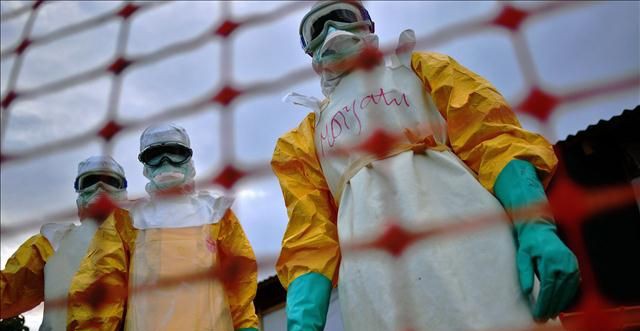
The United Nations Security Council (UNSC) declared Ebola a “threat to international peace and security” in an unprecedented emergency meeting on the disease’s deadly outbreak in West Africa on Thursday.
“This is likely the greatest peacetime challenge that the United Nations and its agencies have ever faced,” World Health Organization Director General Margaret Chan told the council. “None of us experienced in containing outbreaks has ever seen, in our lifetimes, an emergency on this scale, with this degree of suffering, and with this magnitude of cascading consequences.”
The Council also unanimously passed a resolution that calls on states to lift general travel and border restrictions that undermine the abilities of Ebola-affected countries to respond to the outbreak and associated humanitarian needs. The resolution was sponsored by 130 countries, the highest level of support for any security council resolution in the history of the U.N., according to U.S. Ambassador Samantha Power, who is also the council’s president.
The meeting marked the first time the UNSC ever held an emergency meeting to discuss a public health crisis, and only the council’s second-ever meeting on a public health issue — the only other time they’ve ever met was to address the AIDS epidemic.
Ebola has infected more than 5,300 people and killed more than 2,500, according to WHO figures, with Guinea, Sierra Leone, and Liberia suffering the greatest casualty rates. As the disease began to cross borders and spread into densely-populated urban centers, many criticized both the WHO and the governments of affected countries for not initially taking the disease’s spread seriously enough.
The outbreak shows no signs of slowing down any time soon, with recent analyses demonstrating a startling rise in the rate of Ebola transmission. According to the WHO, 700 new cases were recorded in just the last week. In the hardest-hit countries, “an exponentially rising caseload threatens to push governments to the brink of state failure,” Chan said.
If the current rate of transmission remains the same, a staggering 300,000 additional people will be infected with the virus over the next three months, a recent study found.
Before the vote on the resolution, U.N. Secretary General Ban Ki-moon announced the creation of an emergency health mission to coordinate the international response to the Ebola crisis, and said the agency estimates it needs a 20-fold increase in assistance to turn the tide of the outbreak.
“The gravity and scale of the situation now require a level of international action unprecedented for a health emergency,” he told the assembly. “We cannot afford delays. The penalty for inaction is high.”
Earlier this week, the White House announced that it would send 3,000 military personnel, equipped with medicine and healthcare tools, to the infected region. The U.S. and other western countries have pledged to provide physical and material support to countries struggling to control Ebola — though Thursday’s meeting emphasized just how great a global scare the diseased posed.
“This is not just an outbreak,” Chan told the UNSC. “This is not just a public health crisis. This is a social crisis, a humanitarian crisis, crisis, an economic crisis, and a threat to national security well beyond the outbreak zones.”
